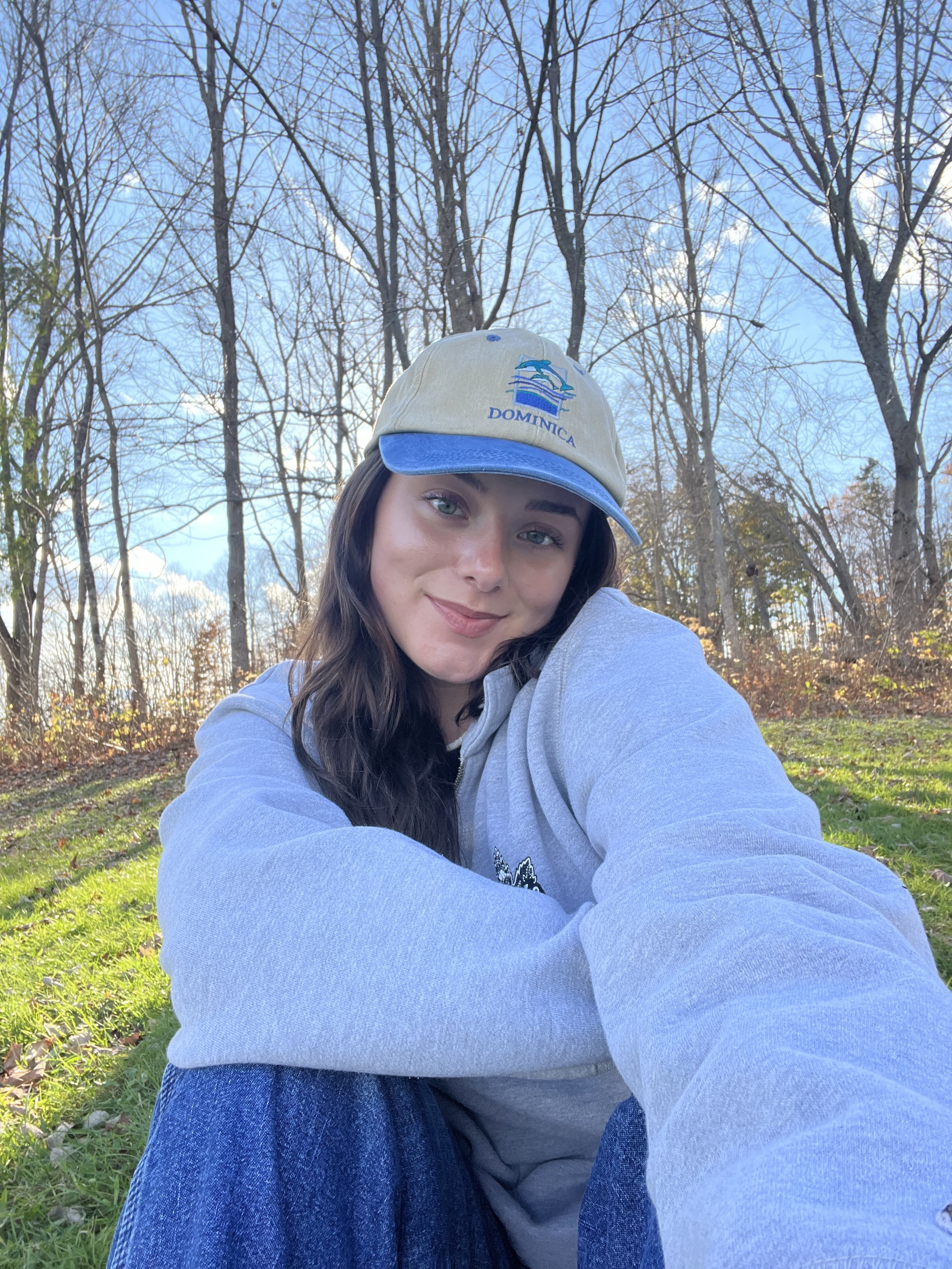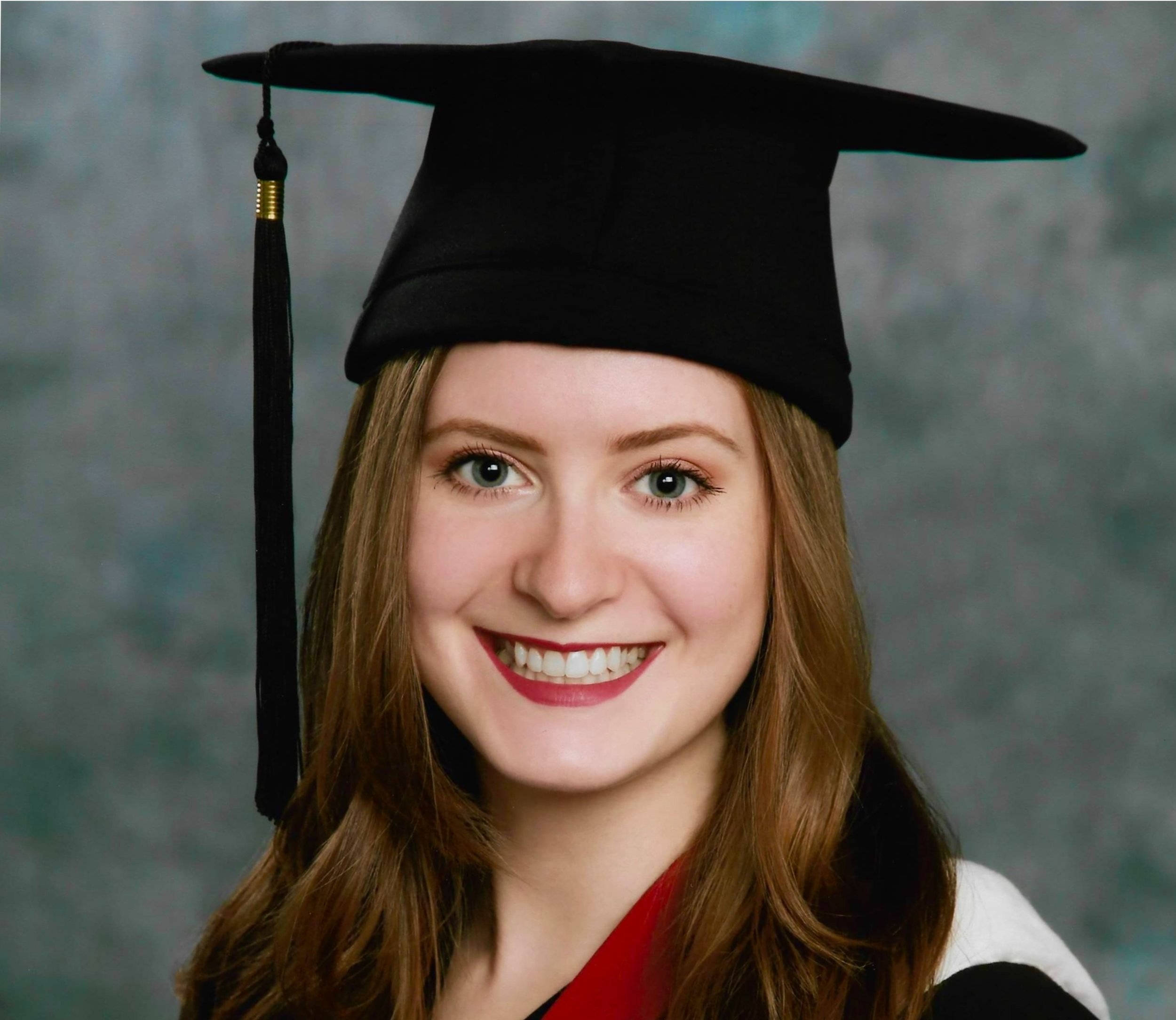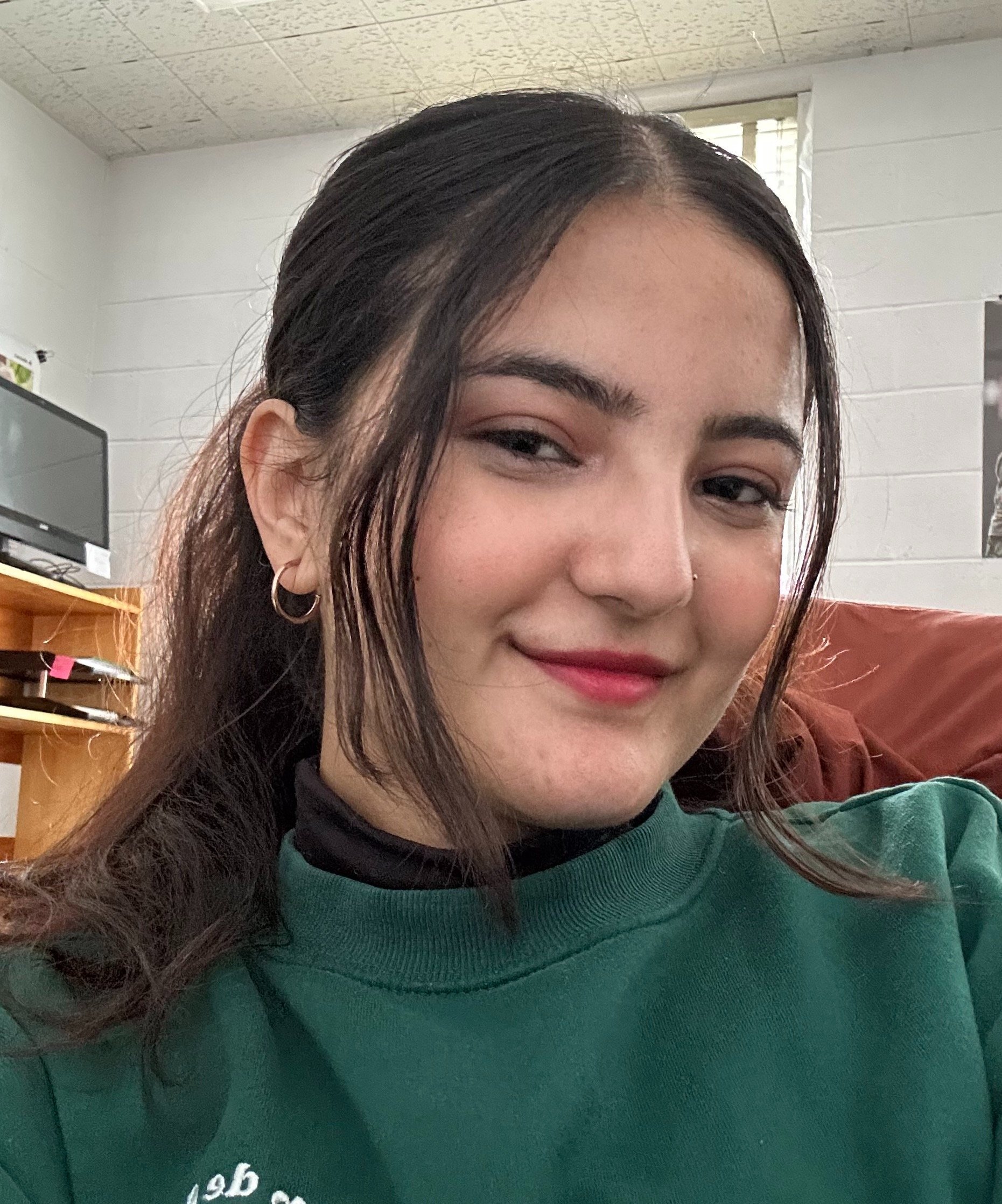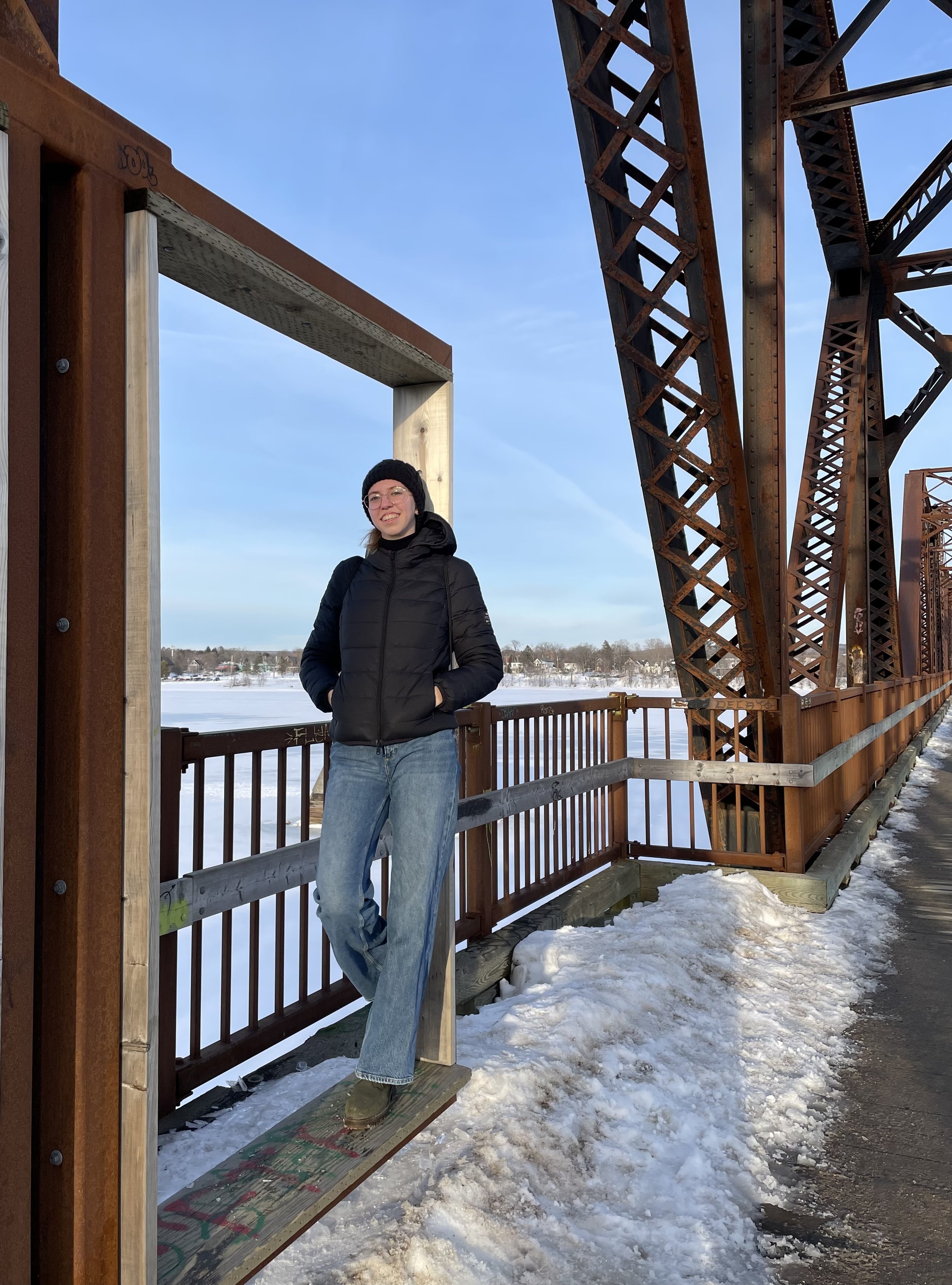
How does circadian rhythm disruption affect memory?
HONOURS THESIS 2023 / SNODGRASS BEST HONOURS CONFERENCE PRESENTATION AWARD
Circadian rhythms are commonly associated with sleep cycles, but they really refer to any biological cycle that spans 24 hours. Disrupted circadian rhythms are a mismatch between a biological cycle and time of day, like being jet-lagged or regularly up at night. In our modern day society - filled with all-nighters, night-shifts, and frequent travel across time zones - most everyone can relate to circadian disruption. But how might this near-constant disruption affect memory? Incé Husain, a PhD student at Western University, completed her Honours thesis in Psychology last year with Dr. Scott Deibel on how disrupted circadian rhythms affect memory. Incé analyzed gene expression in the hippocampus (the region of the brain associated with memory) of rats who had normal circadian rhythms versus those with abnormal circadian rhythms. She found that after only seven days of circadian rhythm disruption, the rats whose circadian rhythms were disrupted had altered activity in genes associated with learning and memory.
Supervisor: Dr. Scott Deibel

A letter from the incoming 2023-2024 Editor-in-Chief
INCOMING EDITOR-IN-CHIEF LETTER 2023-2024
*EDIT JAN 2024: Burns left the EIC role in January 2024. No articles were produced under her term.
A letter from Brianna Burns, incoming 2023-2024 Editor-in-Chief for The Synapse.

A letter from the outgoing 2022-2023 Editor-in-Chief
OUTGOING EDITOR-IN-CHIEF LETTER 2022-2023
A letter from Incé Husain, founder and outgoing 2022-2023 Editor-in-Chief for The Synapse.

“I realized I did not know much about this population”: How the transition out of high school impacts youth with autism or intellectual disabilities
HONOURS THESIS 2023
Autism is a developmental disorder characterized by difficulties in social behaviour and communication. Curious to learn about the experiences of youth with autism, Yara Bayoumi, a graduate from the Bachelor of Arts program in Psychology, did her honours thesis on how quality of life in youth with autism or intellectual disabilities changes during their transition out of high school. Results from this type of study may help schools develop better resources for supporting this youth. She shares how she surveyed caregivers of youth with autism, her process for dealing with her data, and how fulfilling she found the unpredictable aspects of research.
Supervisor: Dr. Barbara D’Entremont and Lindsey McCollough

“It is a debilitating disease”: Finding biomarkers for the early detection of Alzheimer’s disease
EXTERNAL RESEARCHER / MUN
Characterized by extreme deficits in memory and thinking, Alzheimer’s disease is a debilitating brain condition that currently has no cure. Mark Russell, a recent chemistry graduate from Memorial University of Newfoundland, completed his honours thesis on whether carotid arteries - the arteries that carry oxygen to the brain - change in structure and function when Alzheimer’s disease is beginning. Using a mouse model, he did ultrasounds to study differences in carotid arteries in diseased versus non-diseased mice. These differences may be useful in detecting Alzheimer’s disease sooner, and therefore in getting treatments started as soon as possible. Aspiring to study veterinary medicine, he shares how he enjoyed working with mice and the ultrasound machine, and recommends that all students try research.
Supervisor: Dr. Lindsay Cahill

“The satisfaction that comes with a perfect little spherical gel bead”: Preparing ingestible forms of psilocybin and CBD to treat mental health disorders
EXTERNAL RESEARCHER / ACADIA
Emily Sabean is completing a Master’s in Chemistry at Acadia University. Her research is about creating a drug delivery vehicle (i.e. a way to package medications so they can be ingested) containing CBD and psilocybin for the treatment of mental health disorders, like depression and anxiety. She discusses how current antidepressants are not sufficient for helping everyone who is managing a mental health disorder, how no novel medications have entered the market in over twenty years, her research method for creating delivery vehicles for CBD and psilocybin, and the satisfaction she gets from a successful result.
Supervisor: Dr. Nicoletta Faraone

How do parents’ ideas about intelligence shape how they compare their children to other children?
HONOURS THESIS 2023
Uyen Phan completed Honours in Psychology (BA) and a minor in French. Her thesis studied how parents’ notions of intelligence as either a fixed or improvable trait affect how they compare their children to other children. Initially planning to do a study comparing Western and Eastern Asian parents, she hopes that this topic will be studied across cultures in future. She explains that her research experience was rich with unpredictability - with changes in her thesis topic, unexpected study results, and many discussions with her supervisor for improving the study - and is hoping to continue this study with more participants.
Supervisor: Dr. Elaine Perunovic

“This type of research will inform future health regulations”: How intrauterine exposure to nanoplastics alters brain development in mice
EXTERNAL RESEARCHER/ MUN
Nikita Harvey is a Master of Science student in Chemistry at Memorial University. She completed her honours thesis last year on how brain structure in mice is impacted by intrauterine exposure to “nanoplastics” - plastics that have been broken down in the environment into small particles. She shares how these findings are relevant to humans, how she delights in the experience of behavioural testing, and that her thesis was published last February in Environmental Science.
Supervisor: Dr. Lindsay Cahill

Why do adolescents have low intentions to seek help from professionals?
HONOURS THESIS 2023
Sof Mehlitz completed Honours in Psychology with a Specialization in Neuroscience (BSc), and a biology minor. Inspired by past research, they attempted to identify factors that might underlie why adolescents have low intentions to seek help from professionals, and how often adolescents intend to seek help from teachers and mental health professionals. They found it most interesting that these factors were different depending on whether a mental health professional or a teacher was considered for help, suggesting that help-seeking intentions are professional-specific.
Supervisor: Dr. Heather Sears

“Picking up a fragile object, like an egg, can turn into a monumental task”: Improving perceptions of grip strength in prosthetic users
EXTERNAL RESEARCHER / ACADIA
Lincoln Inglis completed his Bachelor of Science in Psychology and a minor in computer science from Acadia University. His thesis studied how to improve prosthetic users’ perceptions of grip strength. Specifically, he studied whether accompanying a prosthetic hand with visual stimuli that changes with grip strength can help prosthesis users perceive how strongly they are gripping objects. Involving app development and programming, Inglis shares that his computational neuroscience project allowed him to explore topics that traditionally lie outside psychology, and enjoyed the creative problem-solving that came with them.
Supervisor: Dr. Dan Blustein

“It takes a village to conduct research”: Understanding brain differences in monolinguals and bilinguals with differing reading directions
HONOURS THESIS 2023
Madeline Wiseman completed a Bachelor of Science in psychology with a specialization in neuroscience. Her thesis studied how language is processed differently in the brain for monolinguals and bilinguals who have left-to-right or right-to-left reading directions in their first language. She describes how her project arose from personal curiosity, gaps in the literature, and dialogues with her supervisors, and shares her thoughts on the study’s societal and clinical impacts. Emphasizing the help she received from research assistants in Dr. Whitford’s lab, she believes it “takes a village to conduct research”.
Supervisors: Dr. Daniel Voyer and Dr. Veronica Whitford

How malleable are young adults’ recall of their earliest memories?
EXTERNAL RESEARCHER / MUN
Aaron Murphy completed his Bachelor of Arts in Psychology at Memorial University of Newfoundland. His honours thesis examined whether young adults recall their earliest memories differently when they are told leading information prior to recounting their memories. He explains the main results of the study, how fulfilling he finds qualitative research, and the forensic relevance of the study to understanding witness testimonies in historical child abuse cases.
Supervisor: Dr. Carole Peterson

How have the lived experiences of 2SLGBTQIA+ service members and their partners changed 30 years after the ban on 2SLGBTQIA+ people in the military was lifted?
BASIC RESEARCH PROJECT 2023
Samantha Otis is a Science student completing a psychology degree. Her basic research projects investigated how the lived experiences of 2SLGBTQIA+ service members and their partners have changed 30 years after the ban on 2SLGBTQIA+ people in the military was lifted, which contributes to a large, ongoing Canadian study using interviews from 2SLGBTQIA+ service members. During term, she transcribed a qualitative interview, coded and organized demographic information, wrote the introduction, methods, and results sections of a research paper, and completed multiple training modules about ethics, implicit bias, and the qualitative methodology used in the study.
Supervisors: Dr. Carmen Poulin, Dr. Lynne Gouliquer, and Hilary Longobardi (senior research assistant)

Understanding the addictive-like consumption of sugar-sweetened beverages in Indigenous communities
BASIC RESEARCH PROJECT 2023
Loreena Kujiper is an Arts student in psychology who completed her basic research project with Dr. Emilie Lacroix. As a member of Sheshatshiu Innu First Nation, she is passionate about doing research that acknowledges Indigenous peoples, and contributed to an ongoing project studying the addictive-like consumption of sugar-sweetened beverages among Indigenous adults living in Manitoba. During term, she familiarized herself with traits of addictive-like consumption in Indigenous communities to write an introduction for a paper on this study. Hoping to pursue clinical psychology and Indigenous research in future, her basic research project gave her valuable insight into both her areas of interest.
Supervisor: Dr. Emilie Lacroix

“Research like this brings the psychological and sociological parts of being human together”: Studying human biases towards different social groups
BASIC RESEARCH PROJECT 2023
Sejal Sharma is a 3rd year student doing a Bachelor of Arts in psychology and a minor in sociology. Her basic research project involved examining bias towards social groups one identifies with versus social groups one does not identify with - insights that are crucial to begin dismantling our social biases. During term, she worked with participants to run experiments, attended lab meetings, learned about quantitative research, and began writing a methods section for a paper on the study. She hopes to continue work in Dr. Perunovic’s lab and pursue Honours.
Supervisors: Supervisor: Dr. Elaine Perunovic and Kyoungsil Nah (graduate student)

Understanding the relationship between social media use and academic burnout during the COVID-19 lockdown
BASIC RESEARCH PROJECT 2023
Daniel Huynh is a 3rd year psychology student in the Arts faculty. Resonating with the impact of the COVID-19 lockdown on student mental health, he worked with Dr. Michael Palmer on a research project examining student well-being during quarantine. He investigated whether psychological factors - like impulsivity or openness to experience - might predict social media use in undergraduate students. This may deepen understanding of the established relationship between social media use and academic burnout during lockdown. He summarizes the results of his study and shares the knowledge, confidence, and joy he gleaned from different aspects of the research process.
Supervisor: Dr. Michael Palmer

Studying reading ability in monolingual and bilingual older adults with impaired or healthy cognitive abilities
BASIC RESEARCH PROJECT 2023
Annabelle Strahsberger is pursuing a Bachelor of Science in Psychology at the University of Graz in Austria, and came to UNB as an exchange student. Interested in bilingualism and multilingualism, she contributed to a project examining reading in adults who are monolingual, bilingual, healthy, or presenting with different levels of cognitive impairments. Throughout term, she attended weekly lab meetings, helped prepare a recruitment database, learned how to operate eye-tracking machines and EEG, and completed ethics certification. She enrolled in the basic research course to learn the differences in research settings between Austria and Canada, and learned both about the highly collaborative nature of research and how timelines for research projects are prone to change.
Supervisor: Dr. Veronica Whitford and Narissa Byers (graduate student)

Are local services meeting the needs of Fredericton’s homeless community?
BASIC RESEARCH PROJECT 2023
Emily Fabeck is a 3rd year Arts student studying English and Psychology. Her basic research project investigated how well local services for the homeless in Fredericton address the needs of individuals experiencing homelessness. She contributed to the research by transcribing interviews conducted with homeless individuals and helping to identify common themes in their experiences - tasks which gave her insight into qualitative research methods and the complex problems faced by the homeless. She describes the research process as long and tedious but ultimately rewarding, and recommends the basic research course to everyone for the all-encompassing skills it helps build.
Supervisors: Dr. Scott Ronis and Laura Kabbash (graduate student)

“I am interested in how animals use sensory information to perform behaviours ": Dr. Timothy Erickson brings neurobiology research to UNB
BIOLOGY / INTERDISCIPLINARY
Dr. Timothy Erickson joined UNB’s Biology department in 2021 as an Assistant Professor and a Chair of Neurobiology. Working with zebrafish in his lab, he researches how animals use sensory information to perform behaviours, and employs genetic and environmental methods of study to examine the interplay between genes and behaviour. He recommends courses such as cell biology, cell signalling, genetics, and neurobiology for aspiring neuro and psychology students, and believes that the greatest learning occurs in research settings.

Do religious and spiritual beliefs predict positive life changes following trauma?
GRADUATE STUDENT 2023 / CLINICAL PSYCHOLOGY
Jay Nero is a PhD student in UNB’s Clinical Psychology program and a member of the Centre for Criminal Justice Studies at UNB-SJ. Supervised by Dr. Mary Ann Campbell from UNB-SJ, his thesis examines how extensively religious and spiritual beliefs help first responders and military personnel overcome traumatic experiences. The study was inspired by Jay’s work with trauma survivors and his personal religious experiences in times of hardship. He describes the mix of curiosity and anxiety he feels while doing research; how grad school is marked by a greater workload that builds new styles of learning; how challenging, rewarding, and competitive grad school can be; and encourages undergrads contemplating grad school to discuss their thoughts and ambitions with grad students.
Supervisor: Dr. Mary Ann Campbell (UNB-SJ)